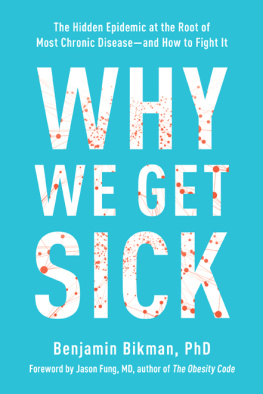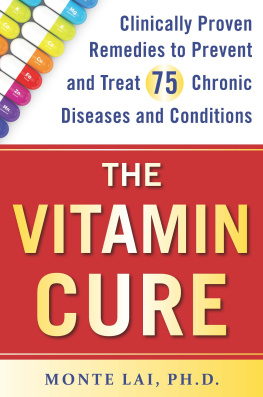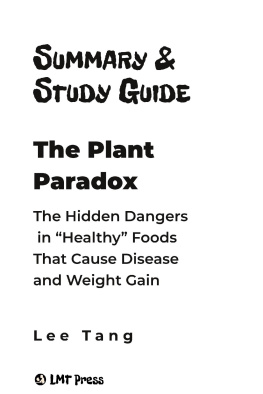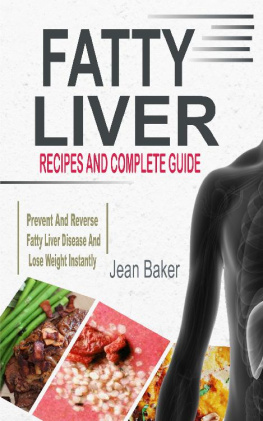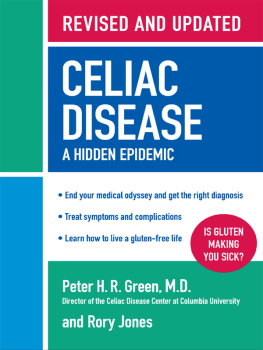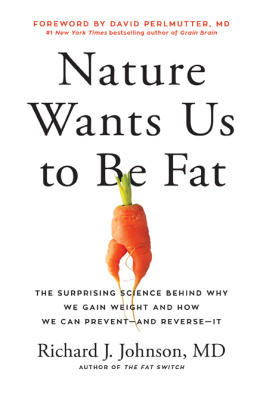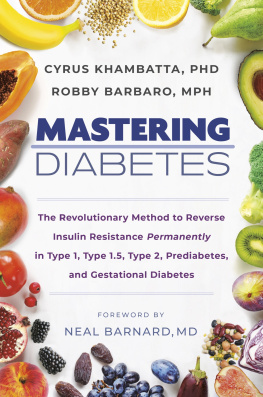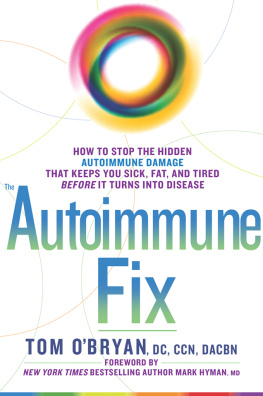Contents
Guide
Praise for Why We Get Sick
If one reads headlines about the health of folks in developed nations, its a depressing read. Heart disease, diabetes, neurodegeneration such as Parkinsons and Alzheimers... all increasing. We know more about these diseases than ever before, yet we seem virtually powerless to do anything about them. But what if, instead of all these conditions and disease being separate and unconnected, one physiological stateelevated insulin levelswas the driver of all this suffering? In Why We Get Sick, Benjamin Bikman unpacks the root cause of modern diseases and provides a concise road map to help you regain or maintain your health.
Robb Wolf, New York Times and Wall Street Journal bestselling author
This book is a unique, rigorous contribution to understanding insulin resistance as an underlying cause of chronic disease and aging. Well written and highly accessible, Dr. Bikman has written a book for both scientists and the average reader who seeks a path back to good health.
Nina Teicholz, science journalist and New York Times bestselling author of The Big Fat Surprise
Its time to make insulin resistance part of the public lexicon. That so many people are unaware of this widespread condition with serious ramifications is a monumental problem, and its one that Why We Get Sick sets out to solve.
Dr. Aseem Malhotra, cardiologist and professor of evidence-based medicine
Thoroughly researched and extensively documented, Why We Get Sick is a comprehensive and indispensable primer on insulin resistance and how it affects virtually every system in the body. Dr. Bikman presents not only an easy-to-understand guide to how and why insulin resistance develops, but a treatment handbook as well. If you want to understand the underlying basis for most of the diseases plaguing the industrialized world right now and how to remedy them, this is the book for you. Highly recommended!
Michael R. Eades, MD, New York Times bestselling coauthor of Protein Power
Insulin resistance underpins nearly every single chronic disease that we struggle with today and ultimately costs us countless billions of dollars in health-care spending, as well as an untold amount of human suffering. Professor Ben Bikman masterfully lays out the role of insulin resistance in disease, how it affects our bodies, and, most important, how to fix it! Scientific references back every statement that he makes and, despite being science focused, it is very accessible for all audiences and a thoroughly enjoyable read!
Shawn Baker, MD, author of The Carnivore Diet and CEO of MeatRx.com
Professor Bikmans sweeping summary of the science of human metabolism makes the ironclad case for insulin resistance as Public Health Enemy #1. Whether the reader is interested in losing excess body fat, optimizing brain function, preventing heart disease, reducing cancer risk, or improving fertilitythis expert curation of the research leaves no stone unturned. There are very few authors with the expertise and ability to connect the data dots in a way that health-care professionals, researchers, and the science-savvy public can trust. This meticulously referenced book will undoubtedly serve as a valuable resource for years to come.
Georgia Ede, MD, nutritional psychiatrist


This book is for informational purposes only. It is not intended to serve as a substitute for professional medical advice. The author and publisher specifically disclaim any and all liability arising directly or indirectly from the use of any information contained in this book. A health-care professional should be consulted regarding your specific medical situation. Any product mentioned in this book does not imply endorsement of that product by the author or publisher.
Many of the designations used by manufacturers and sellers to distinguish their products are claimed as trademarks. Where those designations appear in this book and BenBella Books was aware of a trademark claim, the designations have been printed in initial capital letters.
Why We Get Sick copyright 2020 by Benjamin Bikman
All rights reserved. No part of this book may be used or reproduced in any manner whatsoever without written permission of the publisher, except in the case of brief quotations embodied in critical articles or reviews.

BenBella Books, Inc.
10440 N. Central Expressway, Suite 800
Dallas, TX 75231
www.benbellabooks.com
Send feedback to
BenBella is a federally registered trademark.
First E-Book Edition: July 2020
Library of Congress Control Number: 2019059826
ISBN 9781948836982 (hardcover)
ISBN 9781950665174 (ebook)
Editing by Claire Schulz
Copyediting by James Fraleigh
Proofreading by Karen OBrien and Amy Zarkos
Indexing by WordCo Indexing Services, Inc.
Text design by Publishers Design & Production Services, Inc. Text composition by Aaron Edmiston
Cover design by Oceana Garceau
Cover image iStock / nadla
Printed by Lake Book Manufacturing
Distributed to the trade by Two Rivers Distribution, an Ingram brand
www.tworiversdistribution.com
Special discounts for bulk sales are available.
Please contact .
For Cheryl, Samara, Elizabeth, and Asher
CONTENTS
by Dr. Jason Fung
M EDICAL SCIENCE has advanced considerably in the last century. In 1900, the top three killers were lung infections (pneumonia or influenza), tuberculosis, and gastrointestinal infections. So, if you asked the question in 1900, Why do we get sick? the answer, overwhelmingly, would be infectious diseases. But this is no longer true. With improved sanitation, personal hygiene, and miraculous medications such as antibiotics and antivirals, infections no longer kill as many Americans.
Today, if we ask the question, Why do we get sick? we get a very different answer. The top two causes of death, as well as five of the top seven causes (heart disease, cancer, cerebrovascular disease, Alzheimers disease, and diabetes), are related to chronic metabolic diseases. Over the past few decades, all these conditions have been on the rise. But why? Youre about to learn that a lot of it comes down to one root cause: insulin resistance and hyperinsulinemia (meaning too much insulin in the blood). But, waitisnt that actually two root causes? No, they are the same thing, like two sides of the same coin, differing only in the way you look at it.
As a nephrologist, I specialize in kidney disease, and the most common cause of kidney disease is type 2 diabetes. In only 30 years, the number of people with diagnosed diabetes has quadrupled, and Ive seen its disastrous effects firsthand. Its not just about kidney disease. Patients with type 2 diabetes are also at hugely increased risk of heart disease, stroke, cancer, blindness, nerve damage, amputation, and chronic infections.
All chronic diseases involve a number of different causes and factors, but we know that type 2 diabetes, the prototypical state of hyperinsulinemia and insulin resistance, is one of the biggest. And our failure to understand the root causes of diabetes means that our approach to diagnosing and treating it is all wrong. Patients get diagnosed with type 2 diabetes only when their blood glucose gets out of control. But the causes of this diseaseexcess body weight and increasing resistance to insulinare present long before the diagnosis is made. As Dr. Benjamin Bikman explains in
Next page
